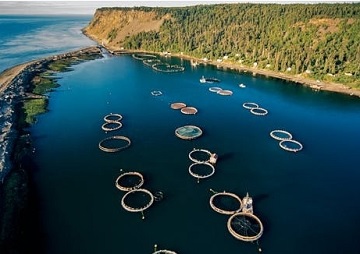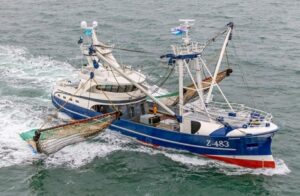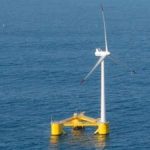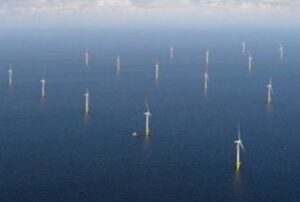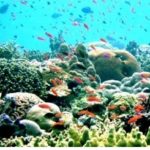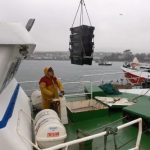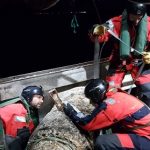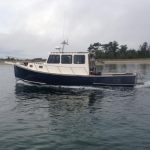Tag Archives: canada

Letter: Right whale entanglements – the undocumented and unknown statistics
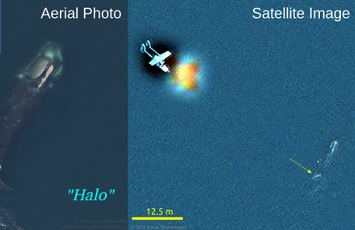
New satellite imagery first to identify North Atlantic right whale from space
New satellite imagery research led by the University of Ottawa is the first to identify a specific endangered Gulf of St. Lawrence North Atlantic right whale from space. Matus Hodul: “The North Atlantic right whale is critically endangered, with about 336 individual whales accounted for. Mortality comes from whales being hit by ships and becoming entangled in fishing gear, so being able to detect and monitor their location is important to conservation efforts. Knowing where the whales are at any given time enables fisheries to open or close to avoid the whales and enables ships to bypass them to prevent collisions.” >click to read< 07:46 ‘Individual North Atlantic right whales identified from space’ >click<

U.S. inflation is sinking Canadian lobster and snow crab prices – U.S. consumers giving up pricey seafood
The price of Canada’s two most valuable seafoods is crashing this year as consumers recoil from the impact of rising inflation. The price of snow crab has plummeted in 2022 between 60 and 65 per cent while lobster prices have fallen about 35 per cent. Demand that had built up during the pandemic for all types of frozen and fresh seafood powered the Nova Scotia industry to a record-breaking year in 2021 with revenues reaching $2.5 billion, led by the two shellfish. But high prices for frozen snow crab and frozen lobster, along with a modest increase in the price of live lobster last year, are melting in 2022. “And the reason is that consumers backed away from the high prices at the same time that they began to be buffeted by these other problems of high gasoline prices, inflation and concern about lack of economic support,” John Sackton said. >click to read< 09:48
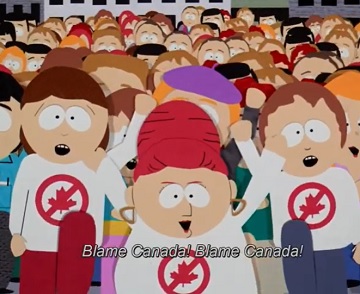
Canada is doing its part to protect right whales
Since 2017, the Canadian lobster industry feels like it’s been trapped in a “South Park” episode. There has been a steady drumbeat eager to “Blame Canada” for the plight of North Atlantic right whales. Right whales were rarely observed in the Gulf of St. Lawrence until recently. All that changed in 2017 when a large number unexpectedly moved to the Gulf. Tragically, we lost 17 right whales: 12 in Canadian waters and five in the United States. Two of the 12 Canadian fatalities were found to be caused by crab gear entanglements. Our Maine peers have made huge strides and sacrifices in recent years to protect right whales. Canada has also been leading the way, with the most aggressive management measures in the world. >click to read< By Geoff Irvine and Nat Richard 15:55

DFO says sorry after lobster lecture goes awry – “Simply leave them there”
While a storm of historic proportions was making landfall in Atlantic Canada, Fisheries and Oceans Canada decided it would be a good time to remind Canadians they’re not allowed to eat any lobsters they find on the shore. “Simply leave them there,” the government agency posted on Twitter. After a few hours of getting ridiculed on Twitter, Fisheries and Oceans deleted the Tweet and followed up with an apology. >click to read< 09:35
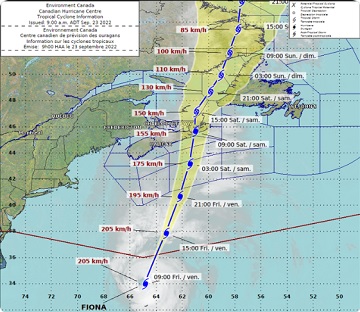
Canadian Hurricane Centre says Hurricane Fiona will be ‘historic, extreme event’
The Canadian Hurricane Centre says Hurricane Fiona will make landfall in eastern Nova Scotia as a powerful post-tropical storm early Saturday. In a Friday afternoon briefing, Bob Robichaud, a warning preparedness meteorologist with the centre, cautioned people not to focus on the hurricane’s track since its effects will be felt across a swath of eastern Canada. Environment Canada says this includes much of Nova Scotia, P.E.I., southeastern New Brunswick, western and southwestern Newfoundland, and some parts of Quebec bordering the Gulf of St. Lawrence. >click to read< – Current Hurricane Conditions – Environment Canada (weather.gc.ca) 13:54
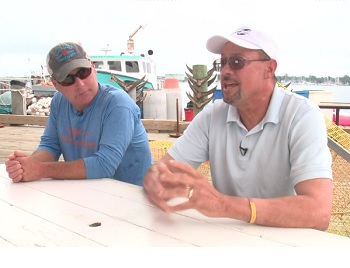
Maine lobstermen say ‘red listing’ a threat to their livelihoods without cause
“I truly believe the lobstermen have done everything we’ve been asked by National Marine Fisheries and the DMR,” said Gerry Cushman, who has been lobstering in Port Clyde for 38 years. “We’re not the bad guys here,” he said. “You ask us to do it, we do it. So why are you putting us on the red list? “ The Seafood Watch listing is recommending consumers not buy American lobster from either the U.S. or Canada. Maine is the primary producer of that lobster for the U.S. Cushman said he believes Seafood Watch has taken the action against Maine fishermen to pressure them to stop fighting proposed regulations in court. Steve Train, a lobsterman from Long Island in Casco Bay, echoed those points, saying Maine fishermen have followed all the whale protection rules, even though they have also been challenging them in court. Video, >click to read< 19:37

Lobstermen vs Whales?
To: Scientists at the Monterey Bay Aquarium. From: Uncle Joe. Subject: The Scientific Method. Dear scientific friends from away, I am not a scientist, although I did get pretty good grades in high school biology and chemistry. I am an old newspaper guy who learned my trade from elderly mentors who sipped cold beers at the loading dock after the giant presses rolled out the last edition. One of the questions I asked them was about verification. The other day, your public relations folks at the Sea Watch program urged the nation’s stores and restaurants to avoid Maine lobsters because they allegedly harmed right whales. Your pronouncement raised a big stink in our neighborhood as it threatens the livelihood of our lobster fishing friends who harvest lobsters in order to feed their families. >click to read< 07:48
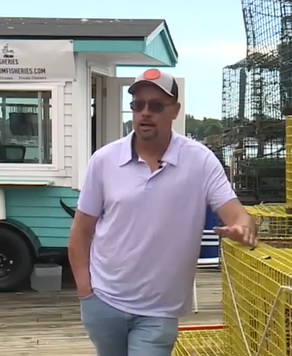
“I don’t think they understand that we’re being mislabeled. We are sustainable.”
The Monterey Bay Aquarium in California has a Seafood Watch program that rates U.S. and Canadian fisheries on their sustainability. The watchdog group just red listed American lobster fisheries in Maine, advising consumers, retailers and restaurants to avoid purchasing lobster from Gulf of Maine and Georges Bank. The report claims that lobster gear poses a risk to the endangered North Atlantic right whale. It’s an assessment that lobstermen say is unfair and inaccurate. “We’re marking our gear different from everybody else,” said lobsterman Steve Train. “So you can tell it’s not happening. We are meeting the goal.” Video, >click to read< 07:45

ENGO recommends against consuming lobster over danger to whales
Seafood Watch, a program out of the Monterey Bay Aquarium, says entanglement in fishing gear is the leading cause of death of the critically endangered North Atlantic right whale population, and US and Canadian lobster fisheries aren’t doing enough to prevent it. Jennifer Dianto Kemmerly is vice president of global ocean conservation at the Aquarium. “We really want consumers and businesses to be aware of how dire the situation is,” Kemmerly said. Meanwhile, the international conservation group Oceana blamed the National Marine Fisheries Service for failing to update safeguards that would protect both right whales and lobster fisheries. To remove the red listing, it recommends using ropeless gear, expanding seasonal closures where whales are present, and improving transparency and monitoring of fishing vessels. >click to read< 18:11
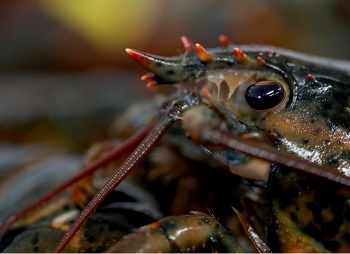
Canada and Nova Scotia help support adoption of new and improved on-board lobster handling/holding technologies
On behalf of the Honourable Joyce Murray, Minister of Fisheries, Oceans and the Canadian Coast Guard, the Honourable Sean Fraser, Minister of Immigration, Refugees and Citizenship and Member of Parliament for Central Nova, and the Honourable Steve Craig, Nova Scotia Minister of Fisheries and Aquaculture, announced a total contribution of over $400,000 to help the Maritime Fishermen’s Union deliver a project to its members that will improve the quality, vitality and value of harvested lobster. This funding will help the lobster fishery in the Southeastern Northumberland Strait, Eastern Cape Breton and Southwest Nova Scotia improve the quality of lobster being marketed, the efficiency of fishing activities, and the onboard safety of crew. Live-well systems, which measure water quality, will be installed or upgraded on vessels. >click to read< 13:16
Funding announced to help support quality of harvested lobster – >click to read<
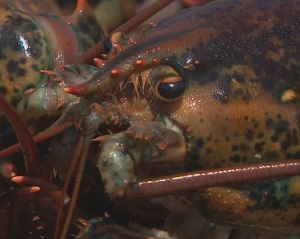
An almost exceptional season for Gaspé lobster fishermen
According to the Regrouping of Professional Fishermen of Southern Gaspésie, the 2022 season is second among the best fishing seasons for Gaspé lobster fishermen, after that of 2021. The General Manager of the Regrouping, O’Neil Cloutier, indicates that this observation can be made both from the point of view of prices and of the volumes caught. Gaspé fishermen brought 8,170,000 pounds of lobsters to the wharf in 2022, a decrease of about 2% compared to 2021. Prices followed the same trend, decreasing slightly. On average, anglers had received a record landed price of $8.35 per pound in 2021. They received an average of 40¢ less this year. >click to read< 10:43
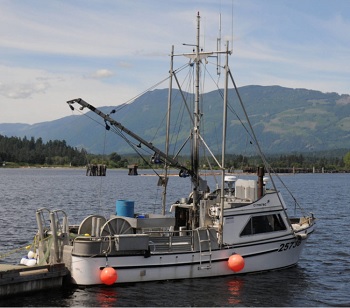
Commercial fisherman’s union concerned over Ottawa’s rejection of Pacific Salmon Commission recommendations
The commercial fisherman’s union has expressed its concerns over Ottawa’s recent rejection of the Pacific Salmon Commission’s (PSC) recommendations which were accepted by the U.S. The PSC’s recommendations, which advocate for a certain amount of commercial fishing, were presented to both countries after a review by fisheries experts from Canada and U.S, said UFAWU-Unifor in an Aug.19 statement. PSC’s mandate is to protect salmon stocks and has long been trusted to enforce the Pacific Salmon Treaty. “Despite PSC recommendations that would support a fishery, the Fraser River Panel announced that ‘all Canadian Panel Area waters remain closed to commercial salmon fishing,’ citing a precautionary approach,” stated the union in a media release. >click to read< 11:13
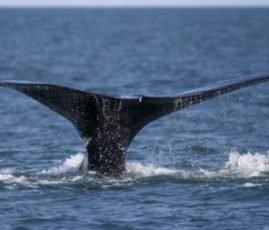
Planes can’t find entangled whale in search Wednesday
Planes and boats searched the Gulf of St. Lawrence on Wednesday, looking for a young North Atlantic right whale entangled in rope and other gear. An airplane saw the calf of a right whale known as 3720 last weekend, 48 nautical miles east of Shippagan, trailing fishing rope and buoys. The Department of Fisheries said at the time that it wasn’t known how long the yearling had been entangled. Whale expert Philip Hamilton of the New England Aquarium said lots of challenges come with finding a whale such as this one, which had previously last been spotted in March off Provincetown, Mass. (Where is the photo of the calf wrapped in fishing gear the plane didn’t take?!!) >click to read< 12:23
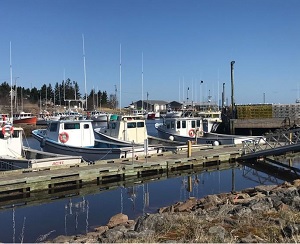
The fisherman’s helper By Vincent Joyce
Since man first went out in his own fishing boat, he has had a fisherman’s helper. When I first went lobster fishing, I didn’t know a thing about it. I had to learn everything from scratch. The only thing that a person had to have is the love of the sea. A person had to learn all about fishing from his boss as you went about your daily work. You had to do what you were supposed to do in all areas of peaceful and dangerous times in a boat, weather-wise. A person learned very, very fast. For example, always watch those traps and rope when you were pushing them off the boat and back into the water. Most times, a fisherman would hire his helper through the winter months or in the early spring. Once the fisherman had a good or great helper hired, he would keep him for as long as he wanted to stay or until he bought his own fishing gear. >click to read< By Vincent Joyce, a former long-time fisherman’s helper 17:18
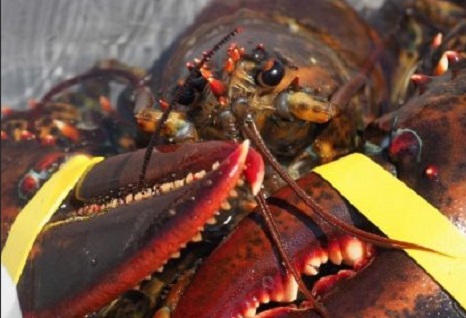
We’re eating less lobster, just as fall fishing season begins
After reaching record high prices in the spring, the shore price for a pound of Atlantic lobster has dropped dramatically, from around $18 to $5. Low demand, both domestically and internationally, and inflation are contributing to this drop, say industry professionals, who are concerned about the rising costs to fish and distribute the product as the fall lobster fishing season commences. Stewart Lamont, managing director of Tangier Lobster Company, a live lobster exporter in Nova Scotia, said consumer purchasing habits have changed since the beginning of the pandemic. >click to read< 07:47

Entangled North Atlantic Right Whale spotted off Shippagan, N.B.
The federal Fisheries Department is on the lookout for an entangled North Atlantic Right Whale in the Gulf of St. Lawrence near Shippagan, N.B. The department says the whale was observed on Saturday by a Fisheries and Oceans Canada aircraft. The whale, which has been identified as the 2021 calf of the whale known as 3720, was spotted about 48 nautical miles east of Shippagan. Officials said they do not know the type of gear that the whale is entangled in, or where it came from. >click to read< 08:14
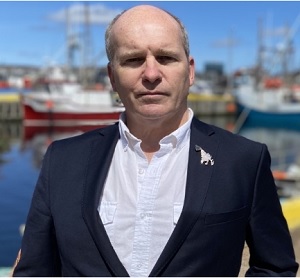
SEA-NL Calls for Crackdown on Foreign Overfishing
SEA-NL is calling on Ottawa to address foreign overfishing. The organization says the fact that a Faroese longliner with six accusations of fishing violations within the past year was allowed to return to fishing shows that the enforcement regime outside Canadian waters is a “horrible joke”. Executive Director Ryan Cleary says the joke is on Newfoundland and Labrador as it makes no difference if the province conserves commercial stocks in their own waters when fish who leave the 200 miles are being picked off by foreign vessels. >click to read< 09:02
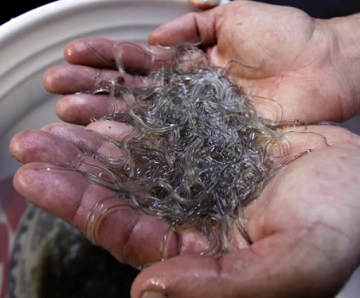
New Brunswick: Dispute over baby eels worth $4,900 a kilogram heads back court
Canada’s most valuable fishery per kilogram will be back before the courts in Saint John next week in a case that pits a longtime commercial licence holder against Indigenous fishers who want a piece of the elver action. On one side, the original plaintiff in the case accuses Indigenous groups of poaching the baby eels in waterways where she has exclusive rights to fish. On the other side, Indigenous groups want to exercise the right to engage in a moderate livelihood commercial fishery in their traditional territory. The court case began in April, when Holland applied for the injunction to stop Indigenous groups from fishing areas where she claims “exclusive” rights to fish, and from threatening and intimidating her workers. >click to read< 16:33
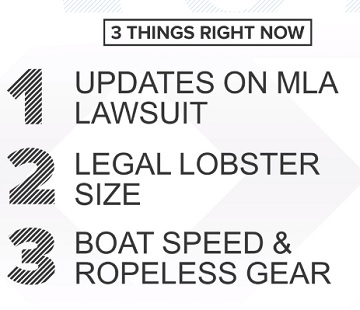
Annual fisheries meeting tackles lobster lawsuits, whale protections
Tuesday in Washington D.C., key players from Maine’s lobster fishery tackled what it considers its most pressing issues. The first issue was an update regarding Judge James Boasberg’s July ruling in the U.S. District Court case involving the Center for Biological Diversity versus Secretary Raimondo and the Maine Lobstermen’s Association. This case made the news in early July after Boasberg ruled regulators aren’t doing enough to protect the right whale. Just days after, he sided with environmental groups in another lawsuit to allow Area 1 to close again to fishermen this coming fall and winter. Another issue was a proposal to shrink the size limit for lobsters over the course of five years in order to replenish the declining population of young lobsters. Also, reduced boat speeds and the future of ropeless lobster traps. >click to read< 20:15

Trudeau launches expanded oceans protection plan, with aim to reach more regions
Prime Minister Justin Trudeau has announced new details about the federal government’s $3.5-billion plan to protect the oceans and boost coast guard facilities on the world’s longest national coastline. In its most recent budget, the government pledged to add $2 billion over nine years to the $1.5 billion already set aside for ocean protection. Speaking at a news conference on Bowen Island, B.C., Trudeau said the government had now launched an extended version of the Oceans Protection Plan. Initiatives already funded by the program include the opening of six coast guard stations in British Columbia and Newfoundland and Labrador, establishing an Indigenous-led coast guard auxiliary in B.C., the restoration of coastal aquatic habitats, and the removal and disposal of hundreds of abandoned boats. >click to read< 15:56
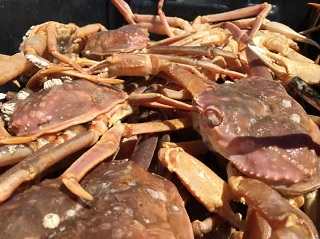
Russian snow crab weighs down our markets
The snow crab fishing season in the southern Gulf of St. Lawrence this year was weighed down by the arrival on the American market of large quantities of this crustacean from Russia. This Russian crab was imported in abundance amid shortages last fall, due to the closure of the fishery in Alaska, and when household spending was on the rise. However, what was selling at a high price then continued to lose its value during the winter, when the American and Canadian governments ended the aid programs linked to the pandemic and when consumers finally deconfined recovered. to travel rather than eat expensive crab at home. Additionally, US buyers continued to buy Russian crab in droves this spring, rather than Canadian crab, before it was affected by the trade embargo due to the war in Ukraine. >click to read< 8:44
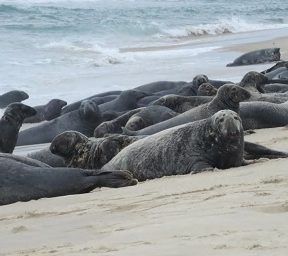
Grey seals eat into another fish population in the Gulf of St. Lawrence
Grey seals are eating into another fish species in the southern Gulf of St. Lawrence, driving a serious decline in the abundance of yellowtail flounder, according to a new report from Fisheries and Oceans Canada (DFO). Federal scientists assessed the flatfish species in the southern gulf over the past 25 years up to 2020 and projected the population to 2030. The results are stark. The number of yellowtail flounder six-years and older is believed to have declined by 95 per cent since the mid-1980s. There is a 100 per cent probability the population will remain in the critical zone where serious harm occurs whatever the level of commercial fishing, the report says. >click to read< 08:39
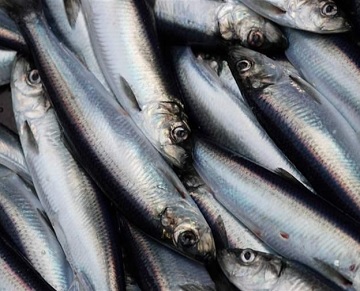
Management Plan Released for Atlantic Herring in Southwest Nova Scotia and the Bay of Fundy
Atlantic herring is a vital species in Atlantic Canada. As one of the largest commercial fisheries in Atlantic Canada, the Southwest Nova Scotia / Bay of Fundy herring stock directly or indirectly employs more than 1,000 people in rural Nova Scotia and New Brunswick and contributes over $140 million to the local economy. Atlantic herring is also an important source of bait for other commercial fisheries, such as lobster and snow crab. Despite a number of measures taken in recent years to encourage rebuilding, the Southwest Nova Scotia / Bay of Fundy Atlantic herring stock remains in the critical zone. Stronger sustainable management actions are needed to protect this important species and return it to abundance. >click to read< 13:29

Canadian Lobster industry sense more regulations coming for Chinese exports
In January, the Chinese Government introduced new import regulations known as Decrees 248 and 249, which require international distributors to register with the General Administration of Customs of China (GACC), and for products to include Chinese-language labeling. Since their implementation, there have been many issues, with lobster distributors claiming they have erroneously been told they aren’t registered with GACC, causing delays in shipping and in sometimes voiding the Chinese importer’s obligation to pay. Currently, the regulations only apply to frozen or cooked products. >click to read< Tracing measures issued in January required Chinese-language labelling on processed seafood >click to read<14:56
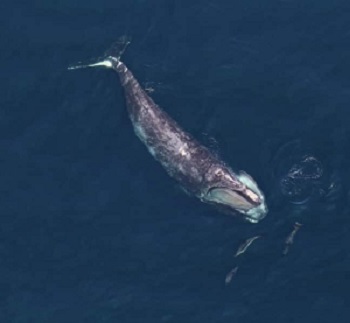
North Atlantic Right Whale: Oceana Wins First Step In USMCA Complaint
The Secretariat for the Commission for Environmental Cooperation, part of the United States-Mexico-Canada Agreement (USMCA), has agreed to move forward with the first step in a two-step process to investigate the USA’s failure to uphold its environmental laws to protect North Atlantic right whales, according to an Oceana announcement this week. The decision was in response to Oceana’s filing the first-ever “Submission on Enforcement Matters” against the US government under the USMCA last October. The ocean advocacy organization claimed the government has violated the USMCA by failing to enforce environmental laws to protect critically endangered North Atlantic right whales, of which only around 330 remain. >click to read< 14:53
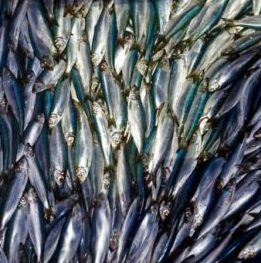
Herring and Mackerel fishing ban: Pelagic fishers from southern Gaspésie appeal for help to Ottawa
This decision had been taken, two days before the opening of the commercial herring fishery, by DFO in order to regenerate the stocks of the two species which would be in critical area
. Since then, pelagic fishermen have received no response from Ottawa, which is slow to decide on possible financial compensation. According to the president of the Association of Professional Pelagic Fishermen of Southern Gaspésie, Ghislain Collin, a dozen fishermen are currently in a very critical position. Captain Tom Langelier is one of those fishermen who lives only from herring and mackerel fishing. >click to read< 09:04
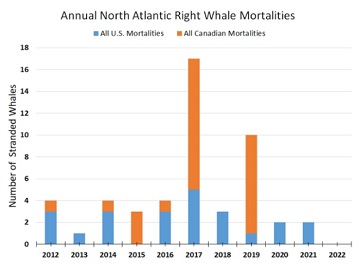
Right whale numbers may be stabilizing after some bad years, but their future remains uncertain
All in all, it’s been so far so good this year, No dead right whales have been spotted. Fifteen calves were born, the second-largest number since 2015. Michael Moore, a senior scientist at the Woods Hole Oceanographic Institution, recorded a recent encounter with a right whale off Massachusetts. Regulators in Canada are responding to the whales arrival this year with large-scale closures of fishing areas to snow crab traps that depend on vertical rope. >click to read< 10:52







